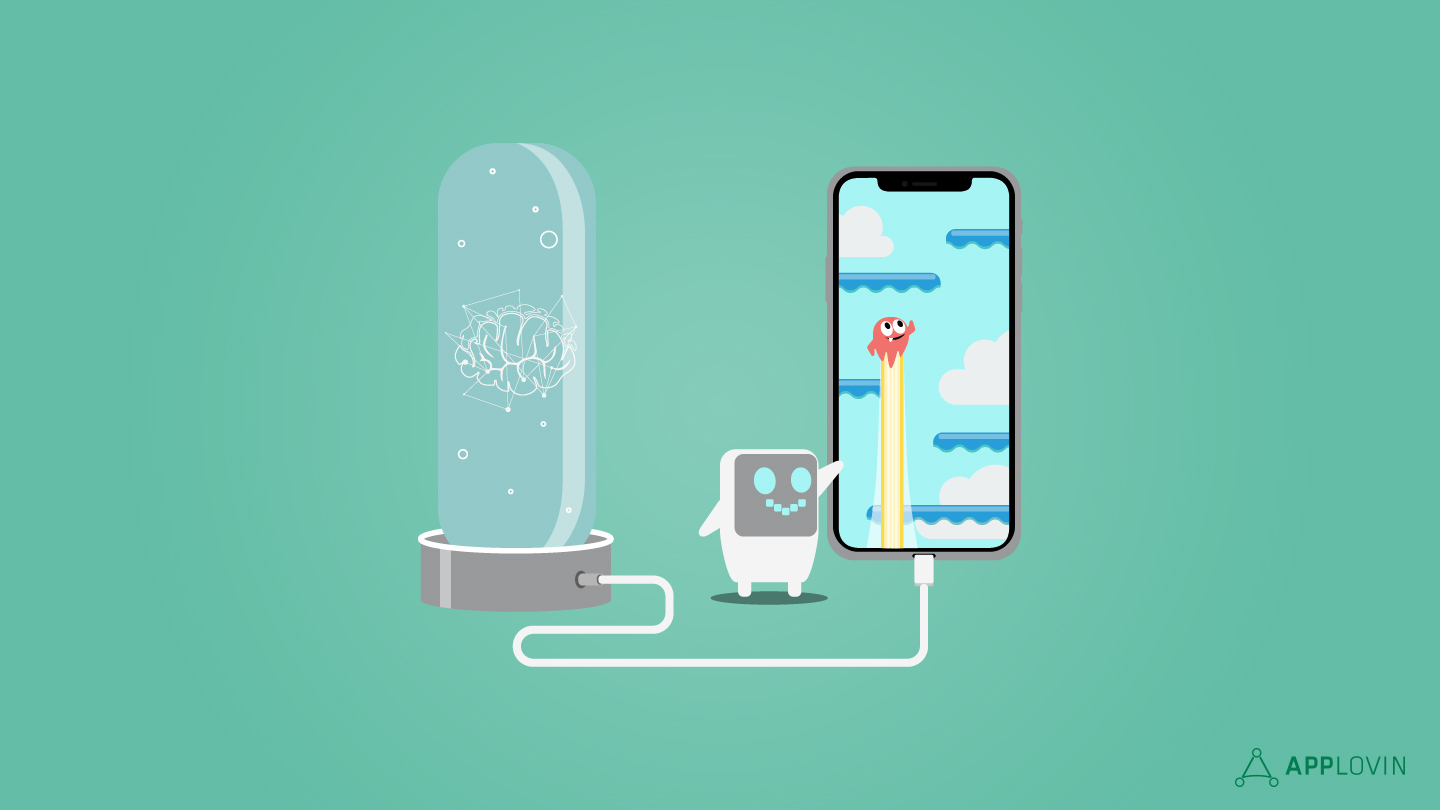Gaming, Industry News & Events, Mobile App Growth
Future of Mobile Gaming: How AI is changing mobile games and their development (part 4)
Apr 24, 2019

Gaming, Industry News & Events, Mobile App Growth

Artificial intelligence (AI) may seem like a buzzword these days with just about every company claiming to use the technology. However, the use of AI in gaming isn’t hyperbole—it is “the foundation of all video games.” From the simplest games like Pong, AI has created gaming experiences that challenge and engage us. While rudimentary, the AI used in early games added a layer of unpredictability, giving gamers a challenge and something new with each playthrough.
Today, AI used in games is more sophisticated than ever and will create experiences gamers have never seen before. These groundbreaking experiences will be created by developers who now have AI-powered tools to make games more realistic and to streamline development. In part four of our Future of Mobile Gaming series, we dive into how AI is driving change in mobile games and their development.
AI, in short, is the ability for a machine or piece of software to demonstrate intelligence. This can manifest in skills like speech recognition, pattern identification in large data sets, and self-driving car navigation. AI requires complex computations and as a result, console and PC games lead the development of AI in games. But as our phones become more powerful and capable, the use of AI on mobile is ramping up quickly. Additionally, game streaming and 5G connectivity will bring the AI advancements made on console and PC to mobile.
https://www.youtube.com/watch?v=Uhkl01wRVEM
One of the best examples of a mobile game using AI is Artie’s Adventure, a VR game developed by Google that features AI-powered characters. The game tasks players with helping Artie find his way back home by interacting with various characters. These AI-powered characters take and process player input and provide unique responses to players. While the gameplay of Artie’s Adventure is relatively simplistic and aimed toward children, it shows how mobile games are beginning to incorporate AI today.
The importance of AI goes further than simply providing intelligent characters to interact with. AI can also help with the procedural generation of content like levels and characters. This means levels can be created on the fly as players progress, providing a unique experience for each player and each playthrough. Minecraft is a great example of a game that procedurally generates content to keep gameplay fresh.
For game developers, AI can help with the creation of mobile games by analyzing player behavior. This allows game designers to analyze how players interact with their games and tailor experiences to them. Telltale Games is a great example of a games studio that gathers data to make it part of the experience. Their games, like The Walking Dead, display how a player’s choices differed from other players.
While Telltale Games didn’t use this player data to feed AI to change gameplay, it hints at what could be possible in the future. Imagine a scenario where a developer can detect when a player becomes frustrated because a specific level or puzzle is too difficult. AI can then dynamically offer up hints to help a player while still giving him or her the satisfaction of beating a level. This means games wouldn’t need players to choose between easy, normal, or hard difficulties at the beginning of a game—the game would simply react to player skill.

Source: Demeryk via Steam Community
AI also has the ability to help mobile game developers optimize revenue by tweaking monetization factors. Services like Game of Whales use AI and machine learning to suggest optimal times to introduce things like in-app purchases or ads by evaluating in-game behavior and progression. This ensures that players aren’t disrupted too early in their session, harming a game’s core loop. AI-powered tools like Game of Whales can help mobile game developers decide the optimal point for capturing a player’s attention and convert them into paying customers.
The potential for AI to change the games industry for players and developers alike is undeniable and companies are investing heavily in the technology. Gaming giant Electronic Arts (EA) started creating its own research and development arm called SEED to explore “new technologies and creative opportunities” for future games, which includes AI.
Across the gaming industry, AI has the power to automate labor-intensive tasks, allowing developers to focus on the creative parts of games development. For small studios, AI can help generate graphics, music, characters, and more, allowing lean teams to create vastly more immersive and engaging games than previously possible.
AI has been a fundamental part of gaming since the beginning and the technology is advancing quickly. While PC and console games may lead the development of AI today, that won’t always be the case. Mobile is now the most popular gaming platform in the world so it won’t be long until mobile leads the AI gaming revolution.